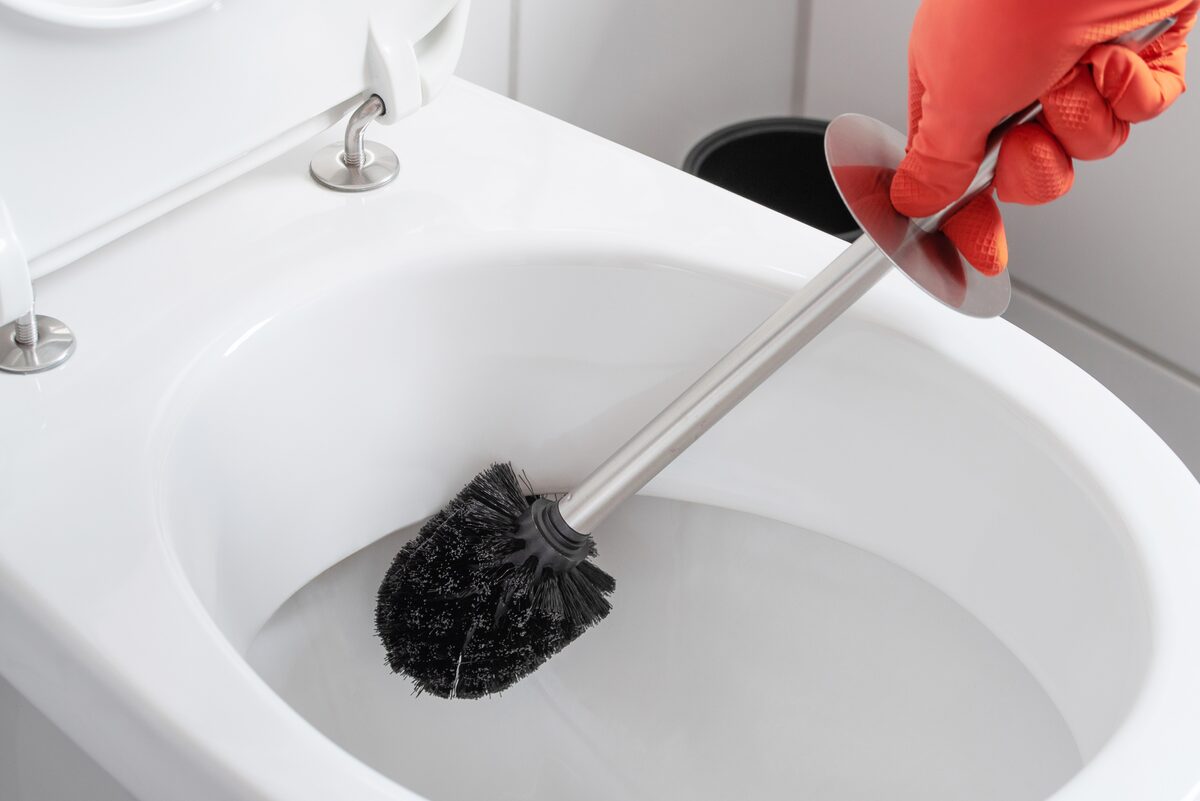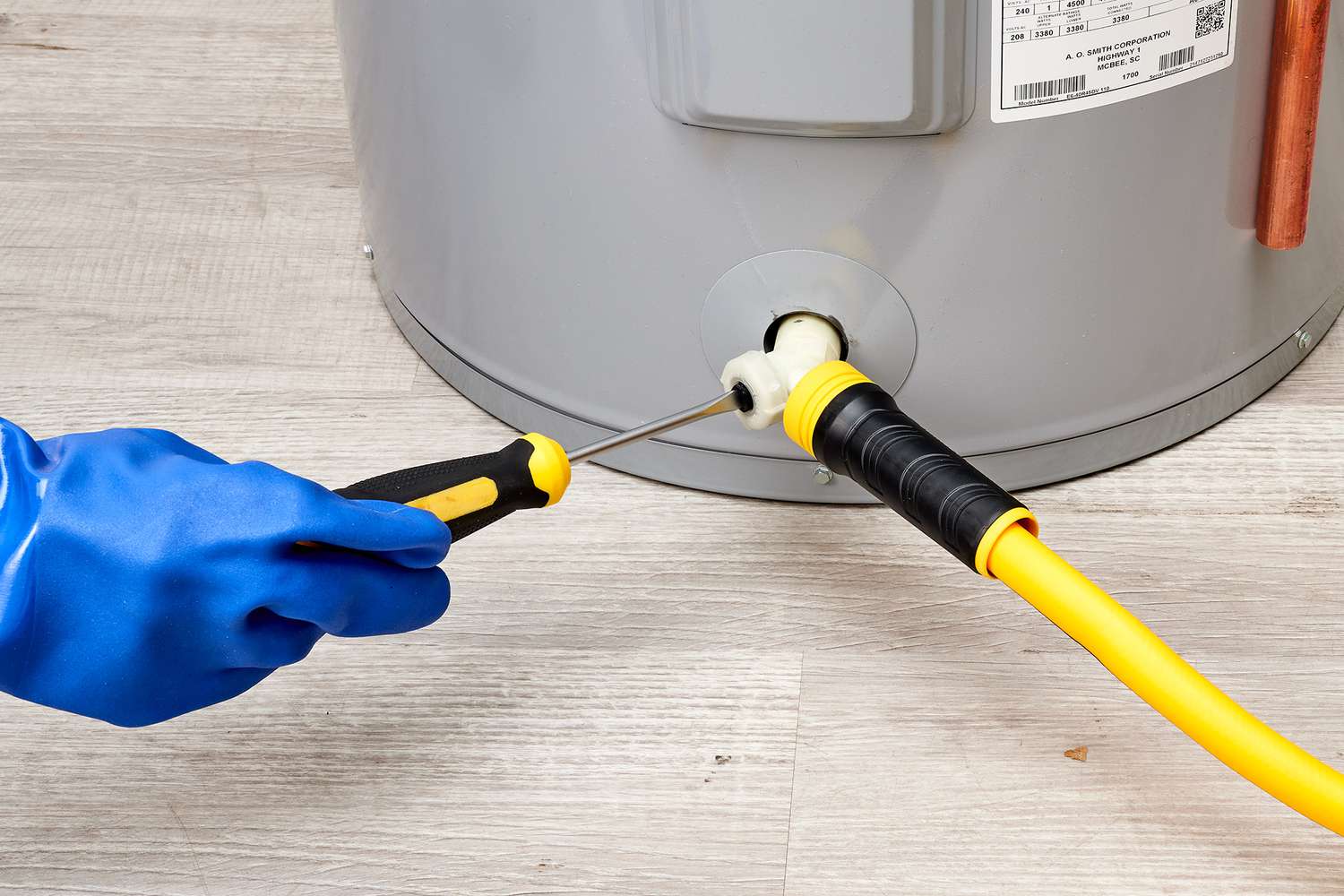Draining a water heater takes about 20-30 minutes. Learn how to do it, why it’s important, and how often you should drain your water...
How to Unclog Toilet When Nothing Works
Draining your water heater regularly is a critical task to maintain its efficiency. Over time, minerals in your water supply form sediment at the bottom of the tank.
This build-up can reduce the tank’s ability to heat water properly, leading to higher energy consumption. A poorly maintained water heater can lose up to 25% of its heating capacity due to sediment accumulation.
Performing this simple maintenance task annually helps reduce your energy bills and also extends the lifespan of the water heater by several years. At Excellence Plumbing & Heating, we always recommend regular maintenance to keep your system in top shape.
Factors That Affect Drain Time
The time it takes to drain a water heater depends on several key factors. One of the most important is the size of the tank. For example, a typical 40-50 gallon tank can take about 30 to 45 minutes to drain, while larger tanks may take longer.
Another factor is the amount of sediment build-up. If your heater hasn’t been drained in a while, the sediment can slow down the process, potentially adding an extra 15-30 minutes to the overall time.
Water pressure also plays a role. Higher pressure can speed up the drain time, while lower pressure might make the process drag on.
Finally, the condition of the drain valve matters. A well-maintained valve will allow for a quicker drain, while a clogged or corroded valve may significantly delay the process.
Step-by-Step Guide to Draining a Water Heater
Turn Off the Power and Water Supply
If your water heater is electric, switch off the power at the circuit breaker. For gas units, turn the gas control knob to the “pilot” setting. Then, shut off the cold water supply to the tank.
Let the Water Cool
Allow the water in the tank to cool down for at least 30 minutes to avoid burns when draining. This step is important for safety.
Connect a Hose to the Drain Valve
Attach a garden hose to the drain valve located at the bottom of the tank. Run the other end of the hose to a drain or outside to avoid flooding.
Open the Drain Valve and a Hot Water Faucet
Open the drain valve and turn on a nearby hot water faucet. This will allow air to enter the tank and help it drain faster. Expect the process to take 30-45 minutes for a standard tank, but be prepared for longer if there’s sediment.
Watch for Sediment
As the water drains, monitor the flow. If you notice sediment coming out, that’s a sign of proper cleaning. You may need to let more water out to fully clear it.
Average Drain Time for Different Conditions
For most residential water heaters, the drain time can vary depending on several factors. A typical 40-50 gallon water heater, with regular maintenance, usually takes 30 to 45 minutes to fully drain. However, tanks with significant sediment build-up can take longer, sometimes extending the process by an additional 15-30 minutes.
For larger units, such as 80-gallon tanks, expect the draining process to take closer to 60 minutes or more, particularly if they haven’t been serviced regularly.
Regular draining prevents these delays and keeps your heater working efficiently, ensuring you don’t face unnecessary downtime.
Tips for Faster Draining
To speed up the draining process, here are a few simple but effective tips:
Use a Clean Hose
Make sure the hose you connect to the drain valve is free of kinks and debris. A clogged hose can significantly slow down the draining process.
Open a Hot Water Faucet
Opening a nearby hot water faucet allows air to flow into the tank, helping the water drain more quickly by preventing vacuum lock.
Clear the Drain Valve
If your tank has heavy sediment build-up, try flushing the drain valve before starting. This clears any blockages and a smoother, faster draining process.
Regular Maintenance
Draining your water heater once a year prevents excessive sediment accumulation. This speeds up future draining times but also helps improve the overall efficiency of the unit.
These quick tips can help save time and keep your water heater running efficiently.
When to Call a Professional Plumber
In some cases, draining a water heater can become more challenging than expected. Here’s when you should consider calling Excellence Plumbing & Heating:
Slow Draining
If your water heater is draining unusually slowly despite following all the steps, it could be due to severe sediment build-up or a clogged drain valve that needs professional attention.
Faulty Drain Valve
A broken or corroded valve can make it difficult to drain the tank or cause water to leak. Replacing or repairing the valve is best handled by a plumber to avoid further damage.
Sediment Buildup
If you notice excessive amounts of sediment in the water or the heater doesn’t seem to drain fully, this could indicate more serious internal issues. A plumber can thoroughly flush the system and inspect for damage.
Water Heater Age
If your water heater is over 10 years old and showing signs of wear, it’s worth having a professional assess whether draining is enough or if a replacement is needed.
Calling in Excellence Plumbing & Heating for these issues can prevent larger problems down the road and keep your water heater running smoothly.








